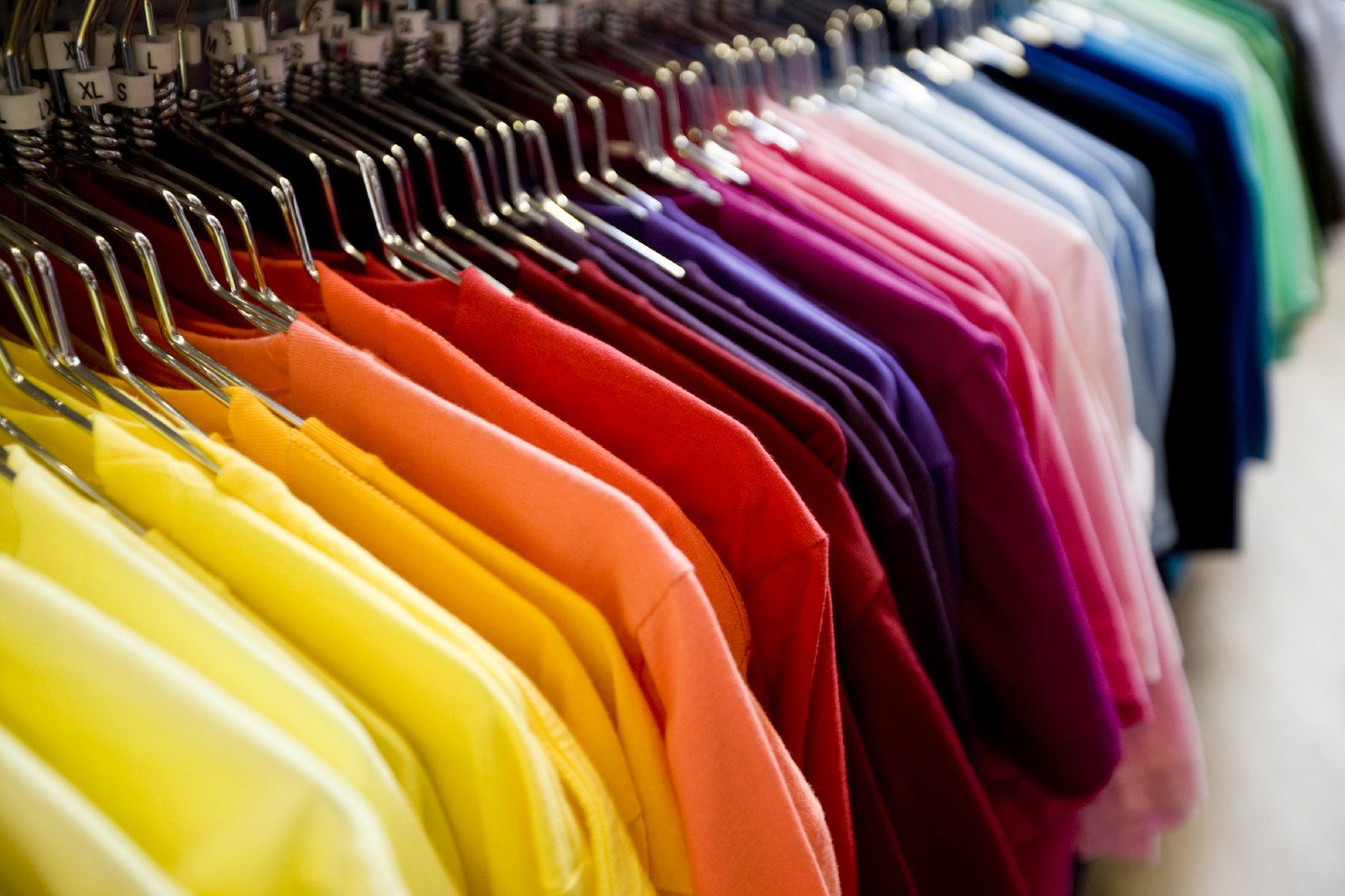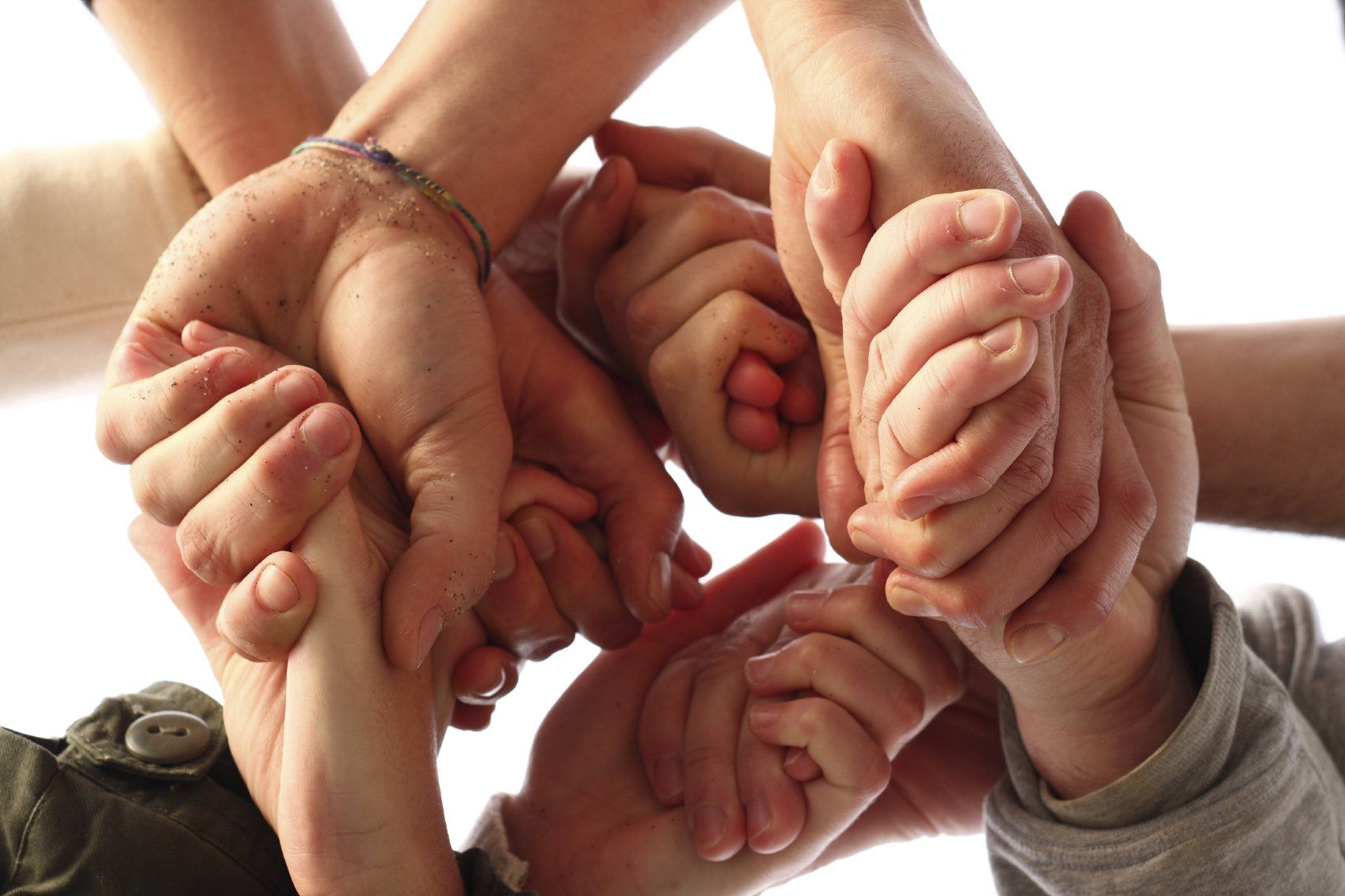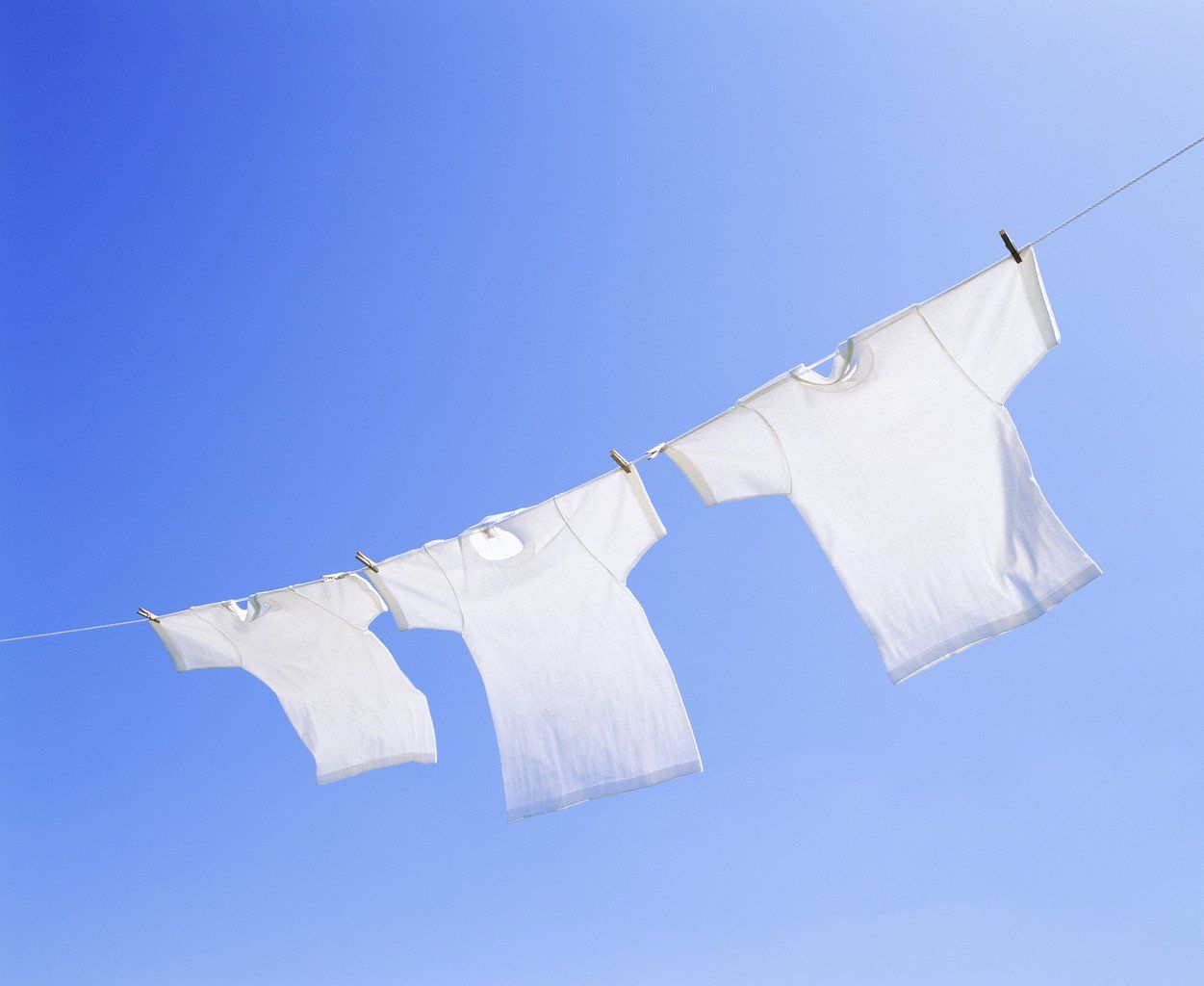Refugee Week Inspiring Women special: the Mardini Sisters

This week’s Inspiring Women’s piece is about Sarah and Yusra Mardini. The activist sisters came to Germany in 2015 having grown up in Damascus, Syria and after fleeing war in their home country, they travelled through Europe for a month, finally ending up in a refugee camp in Germany. Sarah, once a professional swimmer, is a cultural Mediator & Interpreter, an activist and volunteer as a search and rescue swimmer, having studied International Relations and Art at Bard College in Berlin.
Yusra is an Olympic Swimmer, previously competing in Rio with the Refugee Olympic Athletes Team and recently having qualified for the 2021 Tokyo Olympics, she is an activist and an author, and also serves as a Goodwill Ambassador for the UN Refugees Agency.
Words: Emma Fullerton
Interview: Sol Escobar
Illustration: Vivienne Leech
We deserve more
Before the conflict arose in Syria, Sarah describes life in Damascus as vibrantly multicultural, with peaceful coexistence and integration of all communities, during an interview with our founder, Sol, for Refugee Week 2020:
“I grew up in Damascus, there were no differences between anyone and everyone was welcome. Also Syria was well known for opening up their doors for so many refugees from so many countries… we were familiar with the migration in general… not so many people heard about it before, that Syria had refugees.”
As the situation in Syria deteriorated, the Mardini family lost their home and had to move to the countryside. Bombing around Damascus escalated alarmingly, hugely affecting Sarah and Yusra’s lives. Both sisters are trained as professional swimmers, coming from a swimming family, where their parents are swimming coaches. Attending swimming practice, which both sisters were deeply passionate about, became more and more difficult, with a bomb terrifyingly landing in the water during Yusra’s training. The human right to education and freedom from fear disappeared in war torn Syria and the sisters decided to make the journey to Europe.
“We couldn’t go to school, we couldn’t practice and we couldn’t leave the house and we thought we deserve more than that and we have the right to live in a safe place… and just dream about a better future. And that’s when we decided to leave… it didn’t happen just like that, it took us a couple of years to convince my father, because my family was completely against sending two young females by themselves to Europe. Then it happened quickly, in one week we had to pack everything….”
Packing our lives in one bag
Sarah describes the impossible dilemma of having to pack twenty years of her life into just a single backpack, and so both she and Yusra decided to leave with nothing and start again. The two young girls, only 17 and 19 at the time, were forced to leave their family in Syria, as their parents did not want to bring their eight-year-old sister on the boat.
The sisters were amongst some of the first to flee Syria, taking a flight from Damascus to Turkey via Lebanon. In Turkey they met with a smuggler, who explained the procedures and drove the sisters to İzmir. They spent four days on the shore as the boat they were supposed to leave on had been destroyed. Sarah explains, ‘as a female the struggle started there’, living as a young woman on the shore, without a shower, bathroom or any shelter.
After four days a boat arrived, ‘the same boat we use now, you see them a lot in the canals in Hamburg or in Amsterdam’. The boat was designed for seven people, but the Mardini sisters boarded with 20 others, including a four-year-old child.
“And the famous story, that everyone knows, that the boat starts sinking. Me and my sister and other people, not just us, jumped in the water and together… we tried to pull the boat. And actually so many people, out of the people that jumped into the water didn’t know how to swim. We made it to Greece after 3.5 hours.”
“We thought “yay we made it to Europe” and the hard part of the journey was over, but then we realised it was just the beginning. It's a long story. If I want to stop in every country I will not finish even a day.”
There’s no safety
After making it to Greece the sisters travelled through Europe for a month, constantly facing challenges and discrimination. They were conflicted; needing to look out for their own safety, while also wanting to share their experiences: ‘you need to run for your safety, but at the same time you need to make people see you’re a human, look like them, and have the same background and the same stories’.
Sarah reflects on her journey and tries to draw on some positive experiences, highlighting her resilient and positivity:
“There were some very good times, some countries treated us very respectfully, Vienna for example, when we arrived to Germany as well. Other countries didn’t like us being around like Hungary and Serbia.”
“I’m not blaming them, it's politics and what you hear in the news. You’re familiar with your TV screen and politicians more than people who come into your country.”
Sarah and Yusra spent six to eight months in a refugee camp in Berlin. When asked about the difficulties faced in a refugee camp as a woman, Sarah described:
“I’m just going to say to you what we have in the refugee camps and you decide yourselves… there’s no bathroom, there’s no shower, well there is but it's communal so 13,000 people use it together.
“There’s no safety, there’s no healthcare, there’s no mental healthcare and no privacy…”
We are still waiting for a trial
The sisters continue to be haunted by political and social discrimination against refugees. Sarah was on her way home to Berlin to begin her studies, after volunteering in a refugee camp on the island of Lesbos in Greece, when she was apprehended at the airport. She was taken to the local police station, where she was held for hours, with her colleague, Sean, without any explanation. Finally, a lawyer arrived who told her they would be taken to court and had to speak in front of a judge. Everything was still vague and Sarah had no idea what was going on.
She was handcuffed to Sean, asked all kinds of questions and accused of multiple charges. Sarah, Sean, the founder of the team and other volunteers were accused of ‘being part of criminal organisation, money laundering, smuggling, trafficking, espionage, and recently they add fraud’.
They were detained for three and a half months, and had to shut down the organisation, which was essential in providing support to refugees, as everyone organising the team was behind bars, while the volunteers were terrified.
Sarah describes the case as ‘ridiculous’, with the whole thing beginning because those prosecuting the case believed that refugees were coming to the country purely because they ‘believe that someone is standing on the shoreline to give them water’. When the Mardini sisters travelled to Europe they, and other refugees, had little idea of the situation to which awaited them.
The case commenced on 21 August 2018, and (as of 2021) they are still awaiting trial:
“We are still waiting for a trial. Unfortunately the whole situation is political, they didn’t really care who I was or Sean was… Its frustrating because I’m 24 years old and I have to go to college, and at the end of the day I have to figure out how I’m going to pay 40,000 euros for a case, me and Sean. It’s worse because I left because I couldn’t do the same at home… and I come to Europe and it's the same situation again!”
We cannot walk alone
The life of the Mardini sisters perfectly reflects the theme of this year’s refugee week: ‘we cannot walk alone’. Sarah and Yusra are inspiring activists. Both sisters use their talents and passions to uphold and protect the rights of others and support the refugee community; from keeping the boat of refugees afloat, the moment they left Syria, to educating the public, to their work now, as a search and rescue swimmer, and as a UN Goodwill Ambassador, respectively.
Sarah’s activism began ‘by coincidence’ on route to the Olympic games, to support her sister on her trip. Sarah travelled to Greece to volunteer at a refugee camp, giving the children swimming lessons and working with psychologists to help to change their psychology surrounding water. She realised she has so much potential and so much to offer: ‘I speak the language, I am a search and rescue swimmer and a lifeguard, a professional swimmer, so I can give a lot of help there’. Two weeks in Greece turned into a two-and-a-half year journey between Berlin and Lesbos.
Following time in Greece, Sarah’s activism took a different path, when she realised that ‘to change something on the ground I need to educate myself more about the situation. I have the experience but I don’t have the theoretical or academic way to describe it so I can convince someone who is sometimes hard to talk to’.
Both sisters are also active on social media, on Instagram and Twitter, sharing information they receive from refugees, translating or sharing news articles. Sarah says they feel ‘it was kind of our job, whoever was there, to keep notifying, there were still boats, there were still people arriving’, especially when people and media stopped following this in the mainstream news.
By sharing their own stories, the Mardini sisters have become powerful voices for global refugee communities and are an excellent example of resilience and determination.
We stand up, we try again and we continue
In the future, Sarah foresees her future as an activist, working overseas, continuing to support the rights of refugee communities. Yusra has recently qualified to compete in her second Olympics (this time Tokyo 2021) as part of the Refugee Olympic Team, she has also published a book called Butterfly: from Refugee to Olympian, and continues on her journey as an activist and the youngest ever appointed UN Goodwill Ambassador. Both sisters continue to educate and inspire, focusing on the importance of holding humanity and kindness central when facing challenges and connecting with others.
Yusra continues to advocate for refugees and share her inspiring story, from war torn Syria to the Olympic games in Rio and Tokyo, to show support and give hope to those facing similar circumstances as the Mardini sisters:
“I want to tell my story… I thought my story could be something that helps people at the moment in these hard times. I'm using it to motivate them… to give them a reason to continue on to dream again and to know that if you have a downfall, that doesn't mean it's the end of the way.
“No, we stand up. We try again and we continue.”
From Sarah’s perspective an important step in helping refugees is for governments to open the borders. For individuals she emphasises the importance of political activism:
“Whenever there are elections coming soon, campaigns or anything political, we need to make sure that we advocating to our families and friends and surroundings that voting is important.”
Sarah also highlights that volunteering and helping to make a positive difference can happen in any way. She describes her varied activism, including speeches, social media, volunteering teaching English in Berlin, teaching swimming in Lesbos, and as a search and rescue swimmer.
“It’s just whatever you can offer, skills, you can just go for it!”
Sarah is humble about her activism and reminds of the importance of a basic humanity, which she shows people, who are carrying out the same journey she has undertaken. For her, the best part of activism is the fundamental human connection:
“I don’t think I achieved anything that any human cannot really achieve. I think for me one of the best moments I love about being an activist, I have the opportunity to see things from another perspective, and also make someone feel as a human for five minutes.”
The Swimmers, the life story of the Mardini sisters, is currently in production by Netflix and due to release in 2022
Further resources:
To learn more about Sarah and her work:
· Instagram @sarahmardini_x
To learn more about Yusra and her work:
· Instagram @mardiniysra
· Read Butterfly: From Refugee to Olympian, My Story of Rescue, Hope and Triumph (2018) by Yusra Mardini
· Website https://yusramardini.com/
- The Swimmers will be previewing on Netflix in 2022, and tells the story of Yusra and Sarah Mardini’s journey as refugees from war-torn Syria all the way to the 2016 Rio Olympics.
- Bard College Berlin have a refugee programme, which provides scholarships to 8 refugees every year
Sources:
Interview of Sarah Mardini, by Give Your Best Founder, Sol Escobar, as part of Refugee week, held by the Cambridge Assessment Refugee Support Committee in collaboration with Women in Leadership Network: https://ca.bbcollab.com/collab/ui/session/playback/load/3a54fd6d1fdb42b8b48697aac149ecf2
UNHCR, ‘Yusra Mardini’ at https://www.unhcr.org/yusra-mardini.html
Olympics News, ‘Yusra Mardini exclusive’ at https://olympics.com/en/news/yusra-mardini-exclusive-refugees-tokyo
Amnesty International , ‘Demand the charges against Sarah and Seán are dropped’ at https://www.amnesty.org/en/get-involved/take-action/w4r-2019-greece-sean-binder-and-sarah-mardini/








Sign up to our Give Your Best newsletter and stay updated on what is happening in the community, events, news, etc.
Don’t worry, if you change your mind you can unsubscribe at any time.
Here is a link to the privacy policy and Cookie Policy if you want to check how your data is saved.


